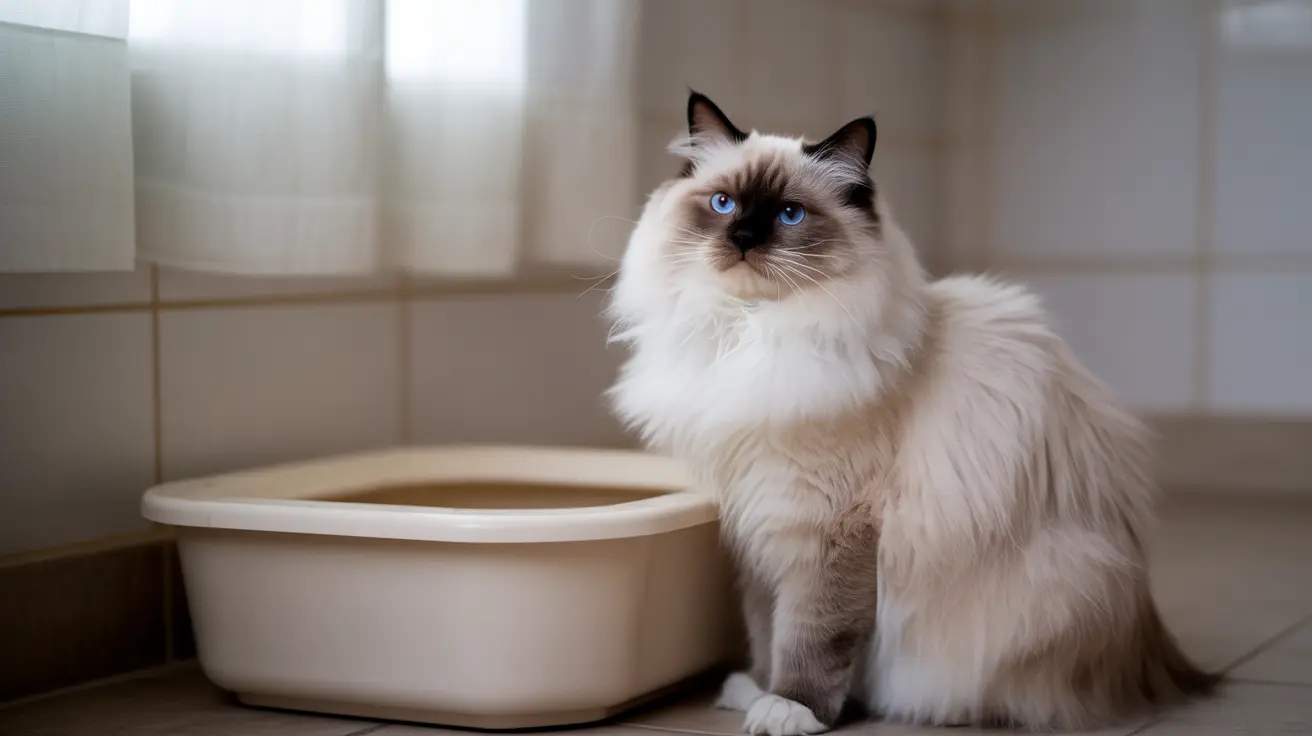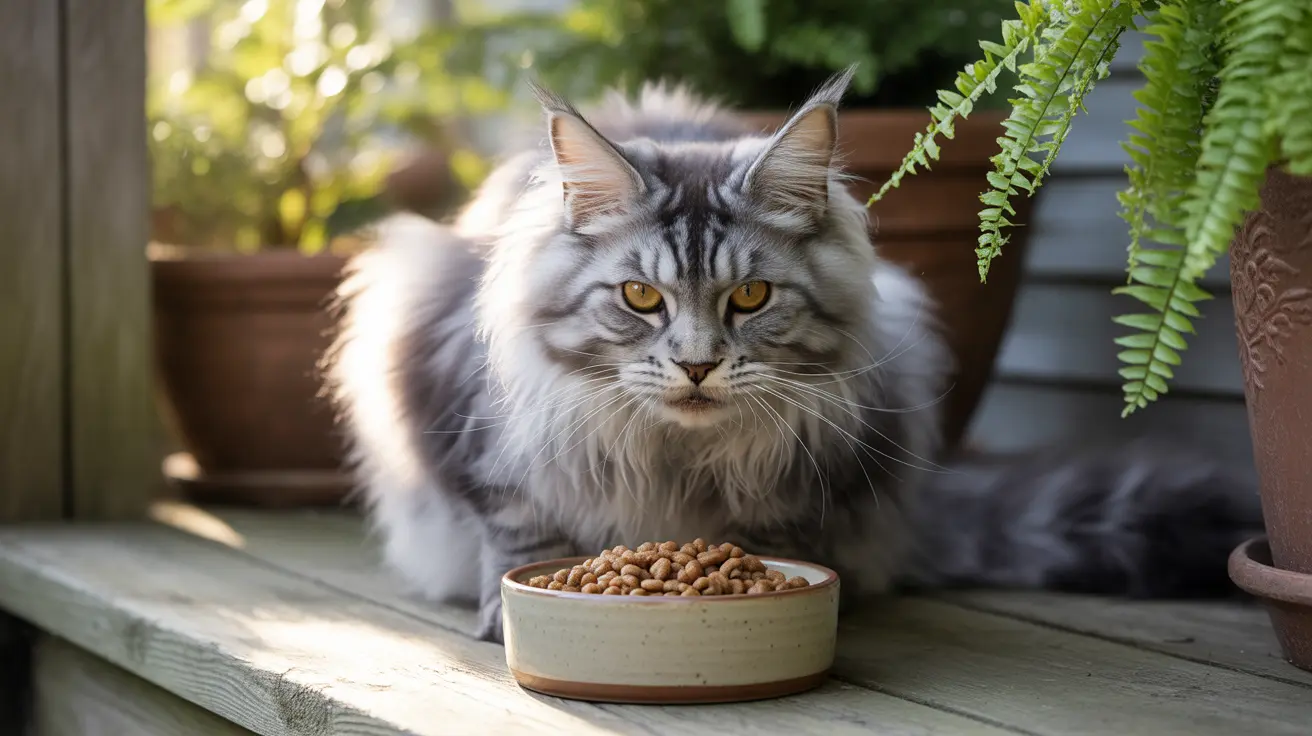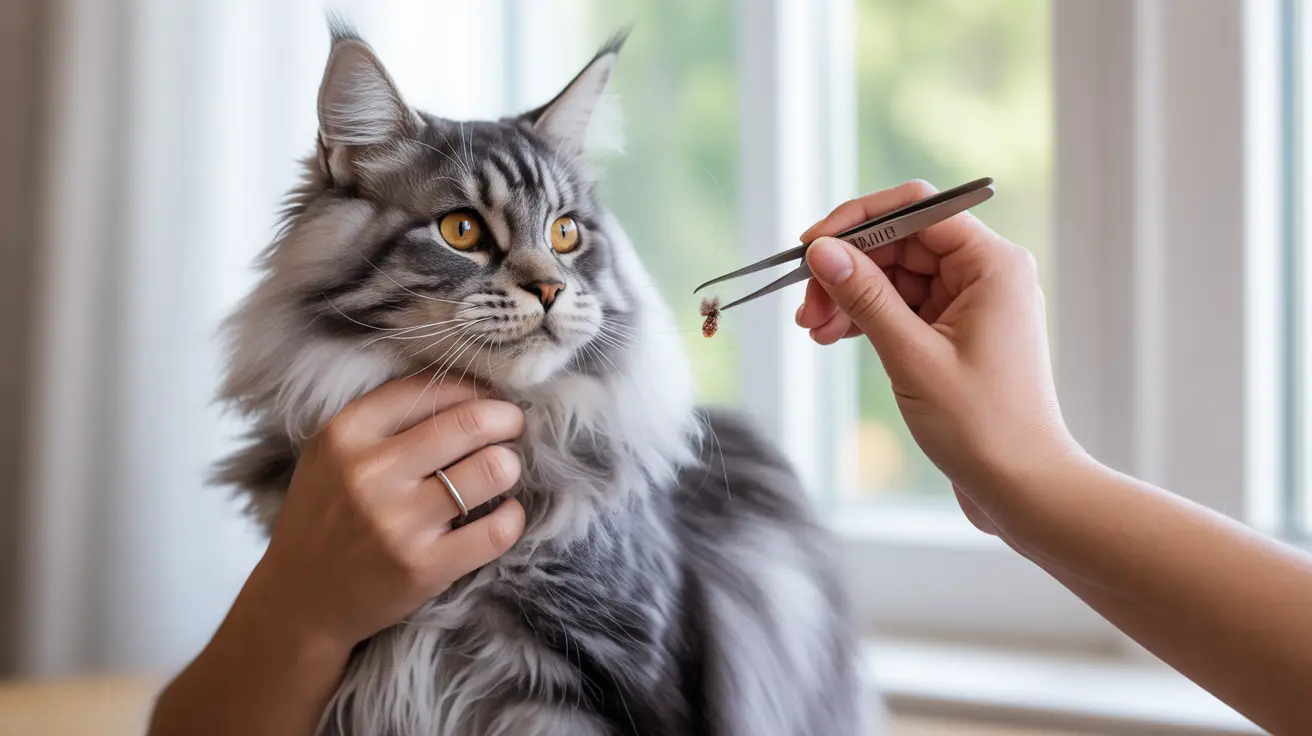Understanding Why Your Cat Coughs
If you've noticed your cat coughing, it's natural to feel concerned. Unlike dogs, cats don't cough frequently, so when they do, it's often a sign that something's not quite right. Coughing in cats is a symptom, not a disease itself—it signals an underlying problem that could range from mild to serious.
What Happens When a Cat Coughs?
Coughing occurs when the mucous membranes lining your cat's trachea (windpipe), bronchi, or bronchioles become irritated or inflamed. This response helps expel foreign material or inflammatory secretions like mucus from the airways. The sound and appearance of the cough can vary depending on what's causing it.
Common Causes of Coughing in Cats
- Asthma: Feline asthma is one of the most common causes of coughing. It's usually triggered by inhaled allergens such as pollen, dust, or mold. Asthmatic cats may also wheeze or have difficulty breathing—sometimes breathing with their mouths open and showing bluish gums if oxygen is low.
- Respiratory Infections: Viruses (like feline herpesvirus and calicivirus), bacteria (such as Bordetella), fungi, and parasites can all lead to coughing. Look for other symptoms like sneezing, nasal discharge, fever, or even vomiting.
- Allergies and Irritants: Everyday substances—smoke, perfumes, cleaning products, essential oils, or dusty litter—can irritate your cat's airways. If you notice more coughing after using certain products or changing litter brands, these could be culprits.
- Heartworm Disease and Lung Parasites: Cats can contract heartworms and lungworms from other animals or their environment. These parasites may cause coughing along with lethargy, weight loss, and poor appetite.
- Heart Disease: Some heart conditions (like hypertrophic cardiomyopathy) cause fluid buildup in the lungs. This leads to coughing and sometimes labored breathing.
- Foreign Bodies: If your cat inhales or swallows something odd—like grass blades or food particles—it might trigger sudden persistent coughing. This situation can quickly become an emergency if your cat seems distressed.
- Hairballs: Cats groom themselves constantly and sometimes cough to expel hairballs. Occasional hairball-related coughs are normal; repeated attempts without expelling anything suggest another problem.
- Tumors and Polyps: Growths within the airway can block airflow and cause coughing. Nasopharyngeal polyps (often benign) may block the back of the throat and force mouth breathing alongside coughing fits.
Recognizing Symptoms That Need Veterinary Attention
An occasional cough isn't always an emergency—but you should watch for these warning signs:
- Coughing that's frequent, severe, or doesn't go away
- Coughing with open-mouth breathing or wheezing
- Bluish or gray gums/tongue (a sign of low oxygen)
- Lethargy (your cat seems tired all the time)
- Poor appetite or weight loss
- Coughing up blood or discharge
If you see any of these symptoms—or if your cat is struggling for breath with its neck extended—seek veterinary care right away.
The Diagnostic Process: How Vets Find Answers
Your vet will start by asking about your cat's medical history: when did the cough start? How often does it happen? Are there any changes at home? They'll listen carefully to your cat's heart and lungs during a physical exam.
You might be asked about specific details: Is the cough dry or wet? Does it happen at certain times? Is there mucus?
The following tests help pinpoint what's wrong:
- X-rays of the chest to check for lung changes
- Blood tests, including screening for heartworm
- Fecal exams, looking for parasites
- Ultrasound scans, especially if heart disease is suspected
- Bronchoscopy/sampling airway fluids, if needed for more information
Treatment Options: What Can Be Done?
Treatment depends entirely on what's causing your cat's cough:
- Bacterial infections need antibiotics.
- Asthma is managed with anti-inflammatory drugs (often corticosteroids) plus bronchodilators to open airways.
- Lungworms/heartworms require anti-parasitic medications.
- Tumors or foreign objects might need surgery.
- Your vet may recommend humidification at home and plenty of rest during recovery.
If medication is prescribed, finish every dose—even if your cat seems better—to avoid relapse. Chronic issues like asthma often need ongoing management with regular check-ups.
Caring for Your Cat at Home & Preventive Tips
- Avoid exposing your cat to smoke, strong scents, dusty litter, and other airborne irritants—switch to unscented litter and keep their space clean.
- A balanced diet supports overall health; minimize stress since it weakens immunity.
- Scoop litter boxes daily; vacuum regularly to reduce dust and allergens indoors.
- If hairballs are frequent, groom your cat regularly and consider dietary adjustments recommended by your vet.
Your best prevention tool is regular veterinary check-ups—these catch problems early before they become serious issues.
Coughing vs Other Behaviors: How To Tell Them Apart
- A true cough comes from deep in the chest; it may sound harsh but doesn't always bring up material unless there's mucus present from illness.
- A hairball episode involves retching that produces a wad of fur; repeated dry attempts without results suggest another issue at play. < li>Sneezing starts in the nose—not chest—and sounds sharper than a cough.< / li >< li >Gagging looks like retching but doesn't bring up vomit.< / li >< h3 >Key Takeaways< / h3 >< ul >< li >Coughing in cats isn't normal if it's frequent , severe , or comes with other worrying signs .< / li >< li >Prompt veterinary attention is crucial for persistent coughs , trouble breathing , blue gums , discharge , blood , or distress .< / li >< li >Keep your home clean , reduce stressors , follow preventive care routines , and consult your vet regularly .< / li >< p >By staying alert to changes in your cat ' s behavior —and acting quickly when things seem off—you'll help keep them healthy , comfortable , and happy .< / p >





